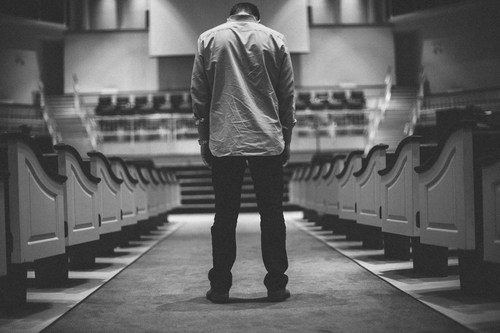The Preacher’s First Word
Then Peter said to them, “Repent, and let every one of you be baptized in the name of Jesus Christ for the remission of sins; and you shall receive the gift of the Holy Spirit.” (Acts 2:38)
When a crowd asks an evangelist “What shall we do,” a good evangelist will never miss the opportunity to tell them to respond to Jesus Christ. That’s exactly what happened in Acts 2 when Peter preached to the multitude at the Feast of Pentecost.
Peter must have been pleasantly amazed to see what God had done in this situation. Instead of people wanting to crucify him because of Jesus, thousands of people wanted to trust in Jesus as Lord and Messiah.

Here is what Peter told them: Repent, and let every one of you be baptized. Responding to the question, what shall we do? (Acts 2:37) Peter gave them something to do. This means that we must do something to receive salvation, we must do something to follow Jesus; it doesn’t just “happen.”
Peter did not say to the crowd, “There’s nothing you can do. If God saves you, you’re saved. If God doesn’t save you, you’ll never be saved.” Though it is true that only God could do the saving, the people had to receive through repentance and faith, faith leading to action such as baptism.
The first thing Peter told them to do is repent. To repent does not mean to feel sorry, but it means to change one’s mind or direction. They had thought a certain way about Jesus before, considering Him worthy of death on a cross. Now they must turn their thinking around, embracing Jesus as Lord and Messiah.
Repent sounds like such a harsh word in the mouths of many preachers and in the ears of many listeners, but it is an essential aspect of the gospel. Repent has been rightly called “the preacher’s first word.”
When John the Baptist preached he said, Repent, for the kingdom of heaven is at hand! (Matthew 3:2). When Jesus began to preach He said, Repent, for the kingdom of heaven is at hand (Matthew 4:17). Now when Peter began to preach, he started with repent.
Repentance must never be thought of as something we must do before we can come back to God. Repentance describes what coming to God is. You can’t turn towards God without turning from the things He is against.
We can’t repent unless God works in us (2 Timothy 2:25), but God won’t repent for us. God works in and through the human will, and a person must respond to God’s invitation (often through a preacher) and say, “I will now repent.”
Repentance must be present at the beginning of our walk with God, but it doesn’t end there. We are to keep on repenting, as God shows us more and more to get right with Him. Today, think of how repentance can be an ongoing work in your life.




Leave a Reply
Want to join the discussion?Feel free to contribute!